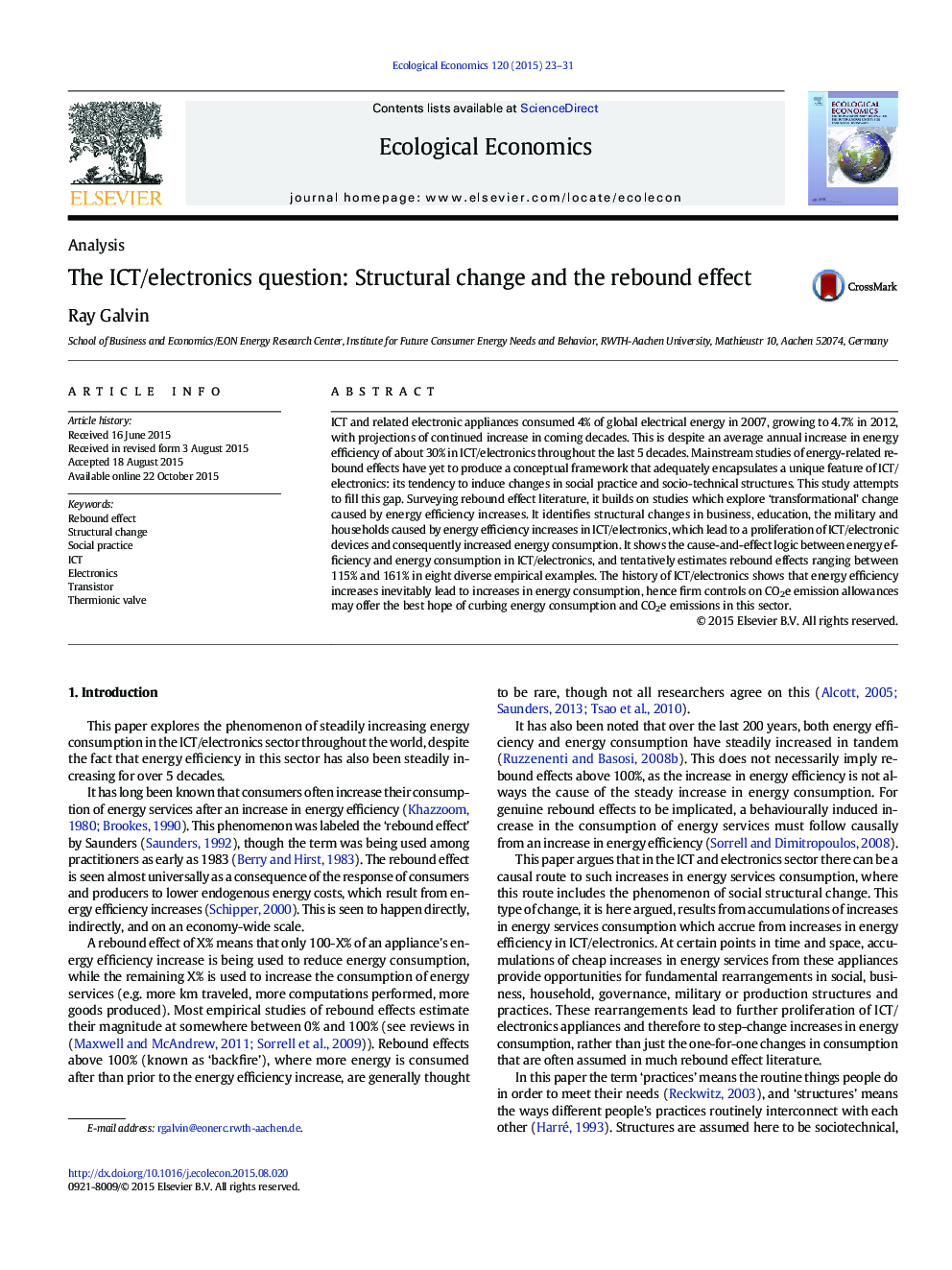| کد مقاله | کد نشریه | سال انتشار | مقاله انگلیسی | نسخه تمام متن |
|---|---|---|---|---|
| 5049184 | 1476359 | 2015 | 9 صفحه PDF | دانلود رایگان |

- Energy efficiency increases in ICT/electronics cause social-structural changes.
- A framework is developed for calculating rebound effects in such a sphere.
- Empirical examples give rebound effects of 115-160%.
- Radical increases in ICT energy efficiency could increase consumption further.
- These need to be set within an effective carbon pricing mechanism.
ICT and related electronic appliances consumed 4% of global electrical energy in 2007, growing to 4.7% in 2012, with projections of continued increase in coming decades. This is despite an average annual increase in energy efficiency of about 30% in ICT/electronics throughout the last 5 decades. Mainstream studies of energy-related rebound effects have yet to produce a conceptual framework that adequately encapsulates a unique feature of ICT/electronics: its tendency to induce changes in social practice and socio-technical structures. This study attempts to fill this gap. Surveying rebound effect literature, it builds on studies which explore 'transformational' change caused by energy efficiency increases. It identifies structural changes in business, education, the military and households caused by energy efficiency increases in ICT/electronics, which lead to a proliferation of ICT/electronic devices and consequently increased energy consumption. It shows the cause-and-effect logic between energy efficiency and energy consumption in ICT/electronics, and tentatively estimates rebound effects ranging between 115% and 161% in eight diverse empirical examples. The history of ICT/electronics shows that energy efficiency increases inevitably lead to increases in energy consumption, hence firm controls on CO2e emission allowances may offer the best hope of curbing energy consumption and CO2e emissions in this sector.
Journal: Ecological Economics - Volume 120, December 2015, Pages 23-31